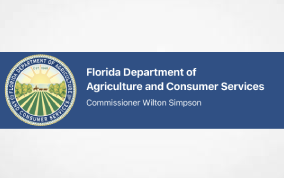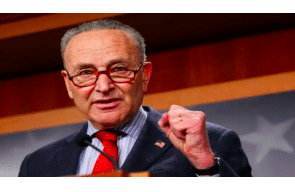Proponents of cannabis legalization have had a lot to celebrate in recent months, with several states passing ballot measures or legislation to support the creation of adult use or medical industries. However, that enthusiasm has not made its way to the federal level. Many hoped that the election of Joseph R. Biden, Jr., would usher in new, more favorable attitudes toward cannabis decriminalization or legalization, but that glimmer is fading by the day.
While the executive branch may not be that enthusiastic about cannabis, the legislative branch is aflutter with activity. For example, the SAFE Banking Act, reintroduced in Congress this year, is gaining more support than ever before. More legislators are vocalizing their support for federal cannabis decriminalization, descheduling, or legalization as well. Of particular interest to cannabis advocates is Senate Majority Leader Chuck Schumer (D-NY), who has promised that federal legalization will be taken up by the U.S. Senate – with or without Biden’s support. Does Schumer’s plan hold weight, or will cannabis professionals be left disappointed once again?
Why the time is ripe for federal cannabis legalization
Prohibition in the 1930s, followed by the “War on Drugs” in the 1970s, has created a civil and geopolitical situation that has wasted countless dollars, put millions behind bars, and denied opportunity to many. Federal Prohibition and its scare tactics do not work, and its stink causes more irreparable harm than the plant could ever do.
And with all that time and money spent on punitive actions against cannabis and its use, what does the government have to show for it? A recent poll conducted by The Hill-HarrisX found that 75% of voters feel cannabis should be legalized in some fashion, with a growing number believing that federal legalization should move forward. One just needs to look at last November’s polls to see the demand for legal cannabis rising.
That disparity between the mission of the “War on Drugs” and the realities of 21st century America is a major reason why Schumer has begun his push.
“For decades, young men who were arrested with a small amount of marijuana in their pockets served long prison terms and then they had a felony record and could never make themselves right,” Schumer said in March. “I want to take it off the federal list that makes it as serious a drug as heroin or cocaine.”
What is Chuck Schumer’s legalization plan?
In recent weeks, Schumer has become more vocal about his intention to introduce a bill, on which he is collaborating with Sens. Cory Booker (D-NJ) and Ron Wyden (D-OR), that would put an end to the federal prohibition of cannabis. The issue has been on the majority leader’s mind since he first introduced a bill in support of cannabis legalization back in 2018.
While speaking with reporters on March 31st, 2021, just hours after New York legalized adult-use cannabis, the veteran Democratic legislator said he supported “decriminalization at the federal level,” explaining that federal decriminalization “lets the states legalize,” which is in line with what President Biden said he would support.
Cannabis legalization was passed in the Democratic-led House of Representatives last December when legislators put the Marijuana Opportunity, Reinvestment, and Expungement (MORE) Act to a vote on the floor. Unsurprisingly, it passed in the chamber with a final vote of 228 to 164. The Senate version of the bill, which was sponsored by then-Senator Kamala Harris (D-CA), went nowhere under the Republican-led Senate and then-Majority Leader Mitch McConnell (R-KY).
However, since the Democrats regained control of the Senate in January, Schumer has been meeting with stakeholders to help develop a comprehensive cannabis legalization bill that sources say closely resembles some of the more recent state bills. In addition to descheduling cannabis from the U.S. Controlled Substances Act, the senator could be trying to get the following provisions included:
- Establishing a federal regulatory framework. To avoid a situation where there will be 50 states with 50 different laws on the production, sale, and consumption of cannabis, the federal government will either establish a regulatory body or place cannabis regulation under the purview of an existing agency. Naturally, this will also come with a way to generate tax revenue.
- Minority equity in the cannabis industry. During a recent online discussion with Wyden and Booker, Schumer said the bill they’ve been working on together would limit how much influence large tobacco and alcohol will have on the industry. Schumer said the bill “will make sure that smaller businesses, businesses in communities of color, get the advantage because communities of color have paid the price for decades. They should at least get something back.”
- Expunge criminal records relating to cannabis offenses. Citing the costs communities of color have paid in the “War on Drugs,” the bill could see non-violent cannabis offenses wiped clean from peoples’ records. “One of the things we want to do is not simply decriminalize, but make sure that records are expunged so that people don’t live their lives as if they committed the most dastardly felony because they smoked marijuana,” Schumer said in the video. “It’s long overdue, it’s an issue of justice, justice, justice, as well as freedom.”
Though there hasn’t been any official word on what the final bill will entail, Schumer has already been making the rounds and expressing his intent to get the bill passed. He recently told Politico that the Senate will move forward, even if the president doesn’t agree with the measure.
“We will move forward. [President Biden] said he’s studying the issue, so [I] obviously want to give him a little time to study it,” Schumer said. “I want to make my arguments to him, as many other advocates will. But at some point we’re going to move forward, period.”
Despite the level of public support for cannabis legalization in some form, there are several potential roadblocks to getting it done, from opposition from Republicans and some conservative Democrats, to major regulatory problems that will have to be ironed out.
How would Schumer’s efforts affect cannabis banking?
Though plenty could be said about the political divide that exists in the U.S., one of the key areas that could cause some problems for legalization at the federal level is the fact that cannabis-related bank fraud is a major concern in Washington. This concern, which was most recently highlighted in the case involving California-based cannabis delivery platform Eaze, could cause problems for an industry that already has a hard time gaining access to financial services.
As it stands, the federal government is keenly aware of existing fraud within the cannabis industry. One issue is the widespread abuse of cashless ATMs, which masks transactions at the dispensary as ATM withdrawals. This system also charges customers a fee to use them and as such becomes a Dodd-Frank violation of the Durbin Amendment. With many illegal cashless ATMs utilized throughout the cannabis industry, this problem by itself could derail the federal cannabis legalization effort. Ultimately, it highlights the importance of transitioning to compliant banking and payment processing methods, which is in the interest of the cannabis business, the financial institution, and the federal regulators alike.
Even though Fincann’s Cannabis Banking Financial Network™ comprises financial institutions willing to work with every sector of the cannabis industry in all 50 states, federal action on scale with Schumer’s proposal would encourage more bankers to look at the cannabis industry with a less skewed eye. Although regulatory bodies like FinCEN have long held that banks can and should work with the cannabis industry, the decision to service these businesses lies with each bank’s board of directors, which can be described as “mainstream conservative” and may not view the industry favorably. However, signals from the federal government that cannabis is no longer a dangerous substance may ease that Reefer Madness, opening these institutions to hearing the case for cannabis.
Separate from Schumer’s initiatives in the Senate, the SAFE Banking Act was reintroduced in Congress in late March 2021. This legislation, which passed in the House of Representatives in 2019 but died in the Senate, would protect financial institutions from prosecution if they provide services to the cannabis industry. Whether or not Schumer’s initiative succeeds, the SAFE Banking Act would provide much-needed assurance to financial institutions hesitant about working with the cannabis industry.
Even with a promising path, the future of federal legalization remains in the air
Many opponents of federal legalization claim “forcing” legalization on conservative states would be unconstitutional. To that end, prominent politicians, including now-Vice President Harris, are openly talking about decriminalization and expungement over legalization. As the tying vote in the Senate, she could move the conversation in that direction.
Though Schumer could successfully pass a bill in the Senate in 2021, especially given its popularity in the general election, that does not mean the Democrat-led dominance of the legislative and executive branches of government will yield those results. There remains no real objection in Congress that could stop the eventual legalization of cannabis—most legislators understand the public policy benefit of such a measure—but the need to keep winning their reelection bids seems to win out.
And while the COVID-19 global pandemic put the movement on the back burner for a large part of 2020, there still remains some hope that this year will be the year that cannabis gets out from under federal prohibition.
Importantly, shifting federal cannabis policies does not guarantee that banking will follow suit. There will still be financial institutions that won’t work with the cannabis industry. Fincann can connect you to one of the nearly 200 banks – a number that will certainly grow in a post-Prohibition era — that want to work with your cannabis business. By contacting us to see if you qualify, you’ll be taking the first steps toward obtaining full-service compliant commercial banking that every other business enjoys, no matter what happens on Capitol Hill.
















